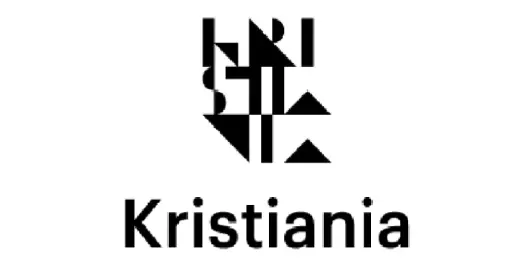Ledig stilling på Universitetet i Oslo
Blindern og Urbygningen (Foto: Wikimedia og Colourbox)
Doctoral Research Fellowship - The Lifetimes of Epidemics in Europe and the Middle East
Deadline: 08.10.2019
Job description
Universitetet i Oslo
The University of Oslo is Norway’s oldest and highest ranked educational and research institution, with 28 000 students and 7000 employees. With its broad range of academic disciplines and internationally recognised research communities, UiO is an important contributor to society.
The Department of Culture Studies and Oriental Languages (abbreviated IKOS from its Norwegian name) is one of the seven departments at the Faculty of Humanities. The Department has a broad competency in the study of religion and culture and in language based area studies of South Asia, East Asia and the Middle East and North Africa. The Department has several study programmes at both BA and MA levels. Among the Department's 110 employees about 40 are PhD and Postdoctoral Fellows.
A Doctoral Research Fellowship (SKO 1017) is available at the Department of Culture Studies and Oriental Languages, University of Oslo. The fellowship is part of the RCN-funded project The Lifetimes of Epidemics in Europe and the Middle East (project no 283375) led by Ass. Prof. Einar Wigen
The Lifetimes of Epidemics in Europe and the Middle East (EPIDEMICS) sets out to analyse and understand the different temporalities of epidemics – how social, scientific and political preconditions for preventing and handling epidemics change, and how these temporalities are challenged by the temporalities of pathogens and disease. The regional emphasis in the project is on Europe and the Middle East.
The position announced is for a PhD candidate with a doctoral project on a topic relevant to the project and with a focus on the Middle East. This may include topics related to scientific knowledge, medicine and public health, interactions between pathogens and humans, political philosophy, and political practice, as well as networks translating and transmitting such knowledge. The successful applicant will have a language-based regional expertise on one or more Middle Eastern contexts. Historical projects using Turkish or Ottoman sources may be given preference. Moreover, training in a social science, medical humanities, cultural history, STS (Science and Technology Studies), history of science, or related methods of inquiry will be considered an advantage.
The EPIDEMICS project is part of the overall LIFETIMES group, and PhD applicants must frame their project proposals within the overall framework of LIFETIMES, found at our website: http://www.hf.uio.no/ikos/english/research/projects/lifetimes/
Read more about EPIDEMICS at
http://www.hf.uio.no/ikos/english/research/projects/epidemics/
The person appointed will be affiliated with the Faculty's organised research training. The academic work is to result in a doctoral thesis that will be defended at the Faculty with a view to obtaining the degree of PhD. The successful candidate is expected to join the existing research milieu or network and contribute to its development. Read more about the doctoral degree.
The appointment is for a duration of 3 years. All PhD Candidates who submit their doctoral dissertation for assessment with a written recommendation from their supervisor within 3 years or 3 ½ years after the start of their PhD position, will be offered, respectively, a 12 or 6 month Completion Grant.
Qualification requirements
- A Master's degree or equivalent in Middle Eastern studies, social science, medical humanities, cultural history, STS (Science and Technology Studies), history of science, or relevant fields. The Master's degree must have been obtained and the final evaluation must be available by the application deadline.
- Fluent oral and written communication skills in English.
- Personal suitability and motivation for the position.
- Ability to use sources and conduct research in either Turkish, Ottoman, Arabic, or Persian, as appropriate for the doctoral project.
To be eligible for admission to the doctoral programmes at the University of Oslo, applicants must, as a minimum, have completed a five-year graduation course (Master’s degree or equivalent), including a Master’s thesis of at least 30 ECTS. In special cases, the Faculty may grant admission on the basis of a one-year Master course following an assessment of the study programme’s scope and quality.
In assessing the applications, special emphasis will be placed on:
- The project's scientific merit, research-related relevance and innovation
- The applicant's estimated academic and personal ability to complete the project within the time frame
- The applicant's ability to complete research training
- Good collaboration skills and an ability to join interdisciplinary academic communities
- Historical projects using Turkish or Ottoman sources may be given preference
Applicants who have recently graduated with excellent results may be given preference. The committee will also consider the overall composition of the project group when evaluating applicants.
We offer
How to apply
The application must include:
- Application letter describing the applicant’s qualifications and motivation for the position
- Curriculum Vitae (with a list of education, positions, teaching experience, administrative experience and other qualifying activities, including a complete list of publications)
- Transcript of records of your Bachelor’s and Master's degrees. Applicants with education from a foreign university must attach an explanation of their university's grading system
- Project description, including a detailed progress plan for the project (3 - 5 pages, see Template for project descriptions)
Please note that all documents must be in English or a Scandinavian language.
Educational certificates, master theses and the like are not to be submitted with the application, but applicants may be asked to submit such information or works later.
The application with attachments must be delivered in our electronic recruiting system, please follow the link “Apply for this job”.
Short-listed candidates will be invited for an interview.
Formal regulations
See also regulations as well as guidelines for the application assessment process and appointments to research fellowships.
Following the Freedom of Information Act (Offentleglova) § 25, Chapter 2, demographic information about the applicant may be used in the public list of applicants even if the applicant opts out from the entry in the public application list.
The University of Oslo has an Acquisition of Rights Agreement for the purpose of securing rights to intellectual property created by its employees, including research results.
The University of Oslo aims to achieve a balanced gender composition in the workforce and to recruit people with ethnic minority backgrounds.
Contact information
Apply for this job













